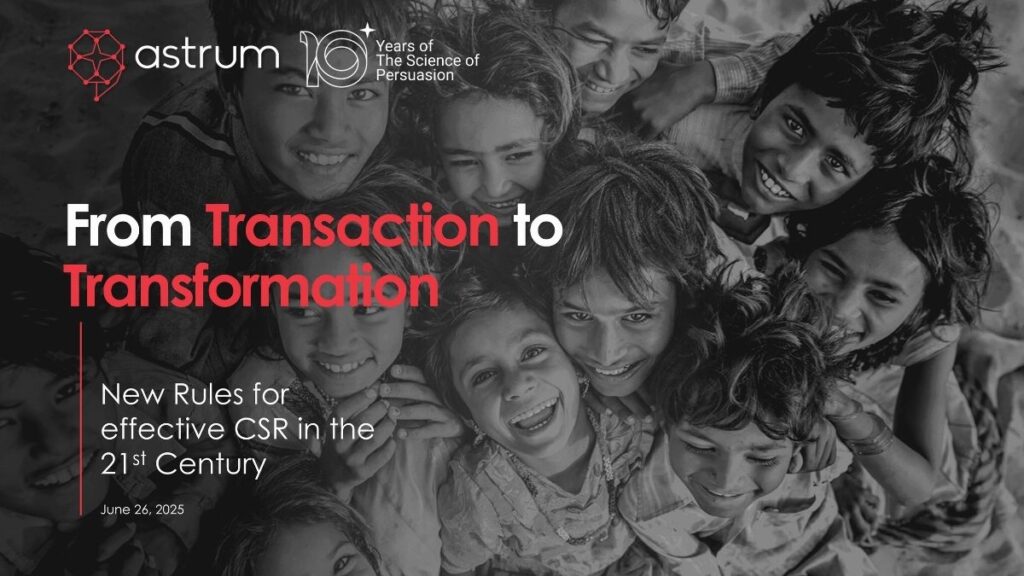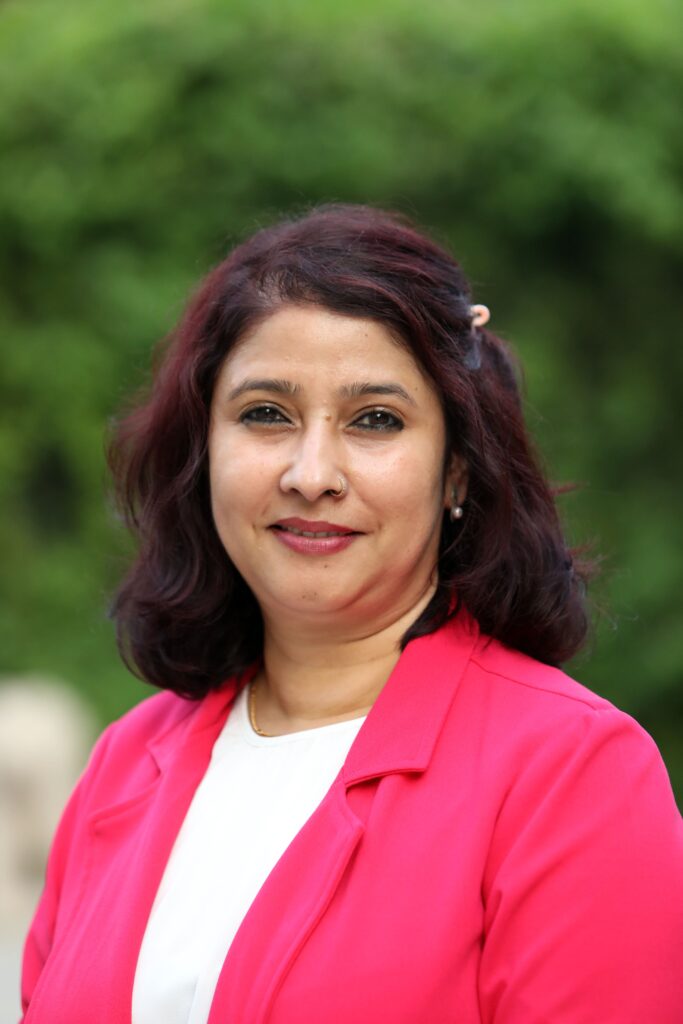From Transaction to Transformation: New Rules for CSR in the 21st Century

Click here to download the full report.
In a world marked by trust deficit, where businesses compete like never before, and companies struggle to protect their license to operate in the face of intense stakeholder scrutiny, business responsibility extends beyond shareholders to communities. With ESG becoming central to valuation and regulation, companies are under pressure—from investors, consumers, and employees to act responsibly. Corporate Social Responsibility has moved from the peripheries to mainstream.
Our latest report, “From Transaction to Transformation: New Rules for CSR in the 21st Century,” provides a succinct understanding of what makes social investment credible, sustainable, and truly transformative.
The Study
To ensure authenticity and depth, the study draws on over 2,000 conversations across India. We conducted 90 in-depth interviews with senior leaders in the Social Impact ecosystem, including CSR heads, project leaders, business executives, NGO heads, and social impact experts. We represented grass root leaders by engaging 150 local influencers, including panchayat members, healthcare workers, teachers, anganwadi workers, and surveyed 1,829 community members from diverse socio-economic backgrounds.
Social Impact is about Transforming Lives
For most organisations CSR begins with compliance and in a larger object, creating community goodwill in the geography where they operate. But what sets transformative efforts apart is the authentic intent and sustained commitment to deliver a sustainable social impact. Underprivileged communities don’t just want aid. They want dignity, opportunity, and change that endures. The most valued programs are those that are collaborative, build local capacity, and stay responsive to evolving needs.
Transactions take away from Impact
Despite best intentions, many social impact initiatives suffer from inconsistency. Many big corporates with substantial CSR spend, too struggle to deliver sustainable impact. Programs are often fragmented, short-term, or misaligned with community priorities. Shifting agendas, delayed approvals, tactical rollouts, and siloed execution dilute long-term impact. The absence of frameworks to measure effectiveness and a lack of community understanding further weaken credibility.
If You Can’t Measure It, You Can’t Manage It
Governments, Investors, and the General Public, everyone wants to see tangible results. What changed? How many lives were impacted? Is the change sustainable?
There is a need for institutionalising data. The metrics need to shift from counting reach to tracking outcomes and long-term transformation. Regular monitoring, clear milestones, need assessments, and technology-enabled reporting are no longer optional. They are essential. Measurement is not just for reporting; it is a strategic tool for decision-making, resource allocation, and continuous improvement.
A Roadmap for Impact: Social Impact Index™ (SII)
To help organizations navigate this complexity, our report introduces the Social Impact Index™ (SII), a holistic framework to assess and enhance the credibility of Social Impact Organizations (SIOs). It comprises:
- Program Effectiveness: Range, reach, and sustainability of initiatives
- Organizational Character: Governance, agility, innovation, financial transparency
- Community Engagement: Shared values, co-creation, stakeholder involvement
- Impact Measurement: Clear metrics, regular evaluation, real-time reporting
SII™ empowers CSR leaders to benchmark their efforts, identify gaps, and craft a more strategic CSR Strategy and Reporting Framework.
Finding Your CSR Focus is Critical
Too often, CSR portfolios are scattered, spread thin across unrelated causes and disconnected from the core purpose of the organization. At Astrum, we help companies define their Social Impact Focus (SIF) through a structured lens:
- Relevance: Which issues matter most to the communities you serve?
- Alignment: How do you tie into national priorities or sustainable development goals?
- Authenticity: Does it reflect your organizational values and strengths?
- Targeting: Who are you reaching? What demographics, geographies, and communities?
Our proprietary approach integrates stakeholder intelligence, narrative framing, and reputation strategy to ensure your CSR efforts are not only impactful, but also recognized and respected.
The Big Shifts Corporates Must Make
The report calls for four critical shifts:
- From Compliance to Commitment: Make social impact part of your business DNA, not just a regulatory requirement.
- From Scattershot to Strategic: Align your CSR focus to a clear issue, community, or geography and stay the course.
- From Reach to Results: Invest in measurement, transparency, and learning to understand what truly works.
- From Strategy to Stories: Showcase real-life transformation, not just numbers, to inspire trust and momentum.
At Astrum, we believe social impact must be as thoughtfully managed as any business function. With insight-driven advisory, we help organizations move from goodwill to good governance—and from good intent to great outcomes.

Co-founder and Chief Science Officer
Sharada is the Co-founder of Astrum. She has close to two decade of experience in market research and research based consulting. She has led a diverse range of studies to generate unique and proprietary insights that have helped political leaders win election campaigns and C suite leaders successfully negotiate the complex landscape of Reputation, Risk, Regulation and ESG.
Sharada is an Economics Honours Graduate from Shri Ram College of Commerce and a Masters in Economics from the Delhi School of Economics and has completed executive education courses from XLRI and the London School of Economics and Political Science( LSE)

